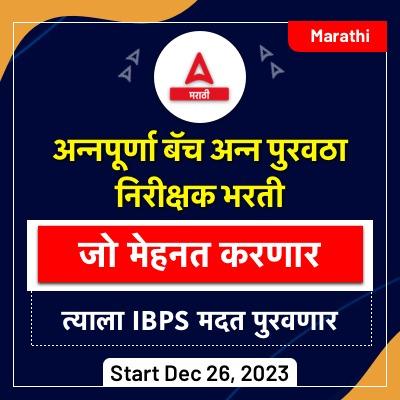Remoulding the Global Plastics Treaty
(The Hindu, 08/06/24)
According to the OECD Global Plastic Outlook, global production of plastic waste was 353 million tonnes in 2019 — more than double since it was in 2000, and is set to triple by 2060.
What is the role of informal waste pickers in plastic waste management?
Informal waste pickers collect, sort, and recover recyclable materials from general waste. They play a crucial role by:
- Reducing the burden on municipal waste management systems.
- Contributing to a circular economy by keeping plastic out of landfills and the environment.
- Mitigating greenhouse gas emissions.
How big is the informal waste picking sector?
The informal sector recovers a significant portion of plastic waste globally. Estimates suggest:
- 85% of all plastic recycling is done by informal workers.
- The informal sector accounts for 80% of municipal solid waste recovery in many cities.
- Up to 15 million people work in informal waste picking.
What challenges do informal waste pickers face?
Despite their contribution, informal waste pickers are often overlooked and vulnerable. They face risks like:
- Increasing privatization of waste management impacting the livelihood of informal waste pickers.
- Exclusion from policy interventions like Extended Producer Responsibility (EPR) schemes.
- Lack of recognition and rights.
How can the Global Plastics Treaty support informal waste pickers?
The treaty negotiations offer an opportunity to:
- Formally recognize waste pickers’ contributions.
- Integrate their skills and knowledge into plastic waste management strategies.
- Protect their livelihoods and promote a just transition for the sector.
- Include waste pickers’ perspectives in policy and legal frameworks.
What is India’s role in the discussions?
India, as a key voice from the Global South, advocates for:
- A nuanced approach that considers country-specific contexts.
- The importance of informal waste pickers in achieving sustainable plastic management.
- Rethinking EPR norms to integrate informal workers into the legal framework.
Can you answer the following question?
The global community is working towards a legally binding treaty to address plastic pollution. How can this treaty be designed to ensure a just transition for the millions of informal waste pickers who play a vital role in waste management, particularly in developing countries like India?.
RBI MPC Meeting 2024 at a glance
(Indian Express, 08/06/24)
The Monetary Policy Committee (MPC) of the RBI concluded its bimonthly meeting and announced its decision on June 7, 2024.
What are the key highlights of the decisions?
- Repo Rate: RBI has kept the repo rate unchanged at 6.5% due to concerns over rising food inflation.
- Repo rate is the rate at which RBI lends money to commercial banks in the event of any shortfall of funds.
- The repo rate was kept steady at 6.5 per cent for the eighth time in a row as sticky food inflation continues to keep retail inflation high.
- The standing deposit facility (SDF) – This rate stands at 6.25%. The SDF is a liquidity window through which the RBI will give banks an option to park excess liquidity with it.
- It is different from the reverse repo facility in that it does not require banks to provide collateral while parking funds.
- The marginal standing facility (MSF) rate – It stands at 6.75%.
- MSF is a window for banks to borrow from the central bank in an emergency situation when inter-bank liquidity dries up completely.
- GDP Growth : The real GDP growth projection for 2024-25 has been revised upwards to 7.2%. As per the RBI, GDP growth outlook is bright and the momentum of economic activity is well sustained.
- However, headwinds from geopolitical tensions, volatility in international commodity prices, and geo-economic fragmentation can pose risks to the growth outlook.
- Inflation: The FY25 consumer price index (CPI) based inflation projection remains at 4.5%.
- CPI headline inflation softened further during March-April, though persisting food inflation pressures offset the gains of disinflation in core and deflation in the fuel groups.
- Pulses and vegetables inflation remained firmly in double digits.
- The RBI has projected CPI for Q1 at 4.9 per cent, Q2 at 3.8 per cent, Q3 at 4.6 per cent and Q4 at 4.5 per cent.
- Under the flexible inflation targeting regime, the RBI aims to keep CPI inflation within a 2-6% range, targeting 4% on a durable basis.
- Liquidity Situation : Liquidity was in deficit in May 2024 at Rs 1.42 lakh crore, compared to a surplus of Rs 20,240 crore in April.
- As per experts, limited government spending during the general elections contributed to the liquidity pressure.
Why has MPC hiked GDP growth?
- Resilient Domestic Activity: Rural and urban demand conditions will improve buoyed by good monsoon forecast.
- Manufacturing Strength: The 8 core industries posted healthy growth in April 2024. The PMI (Purchasing Managers’ Index) in manufacturing exhibited global strength in May 2024.
- Continued Buoyancy in service sector: PMI services stood at 60.2 in May 2024, indicating robust expansion.
What are RBI’s Aspirational Goals for Future Readiness?
- Capital Account Liberalisation: The RBI aims to liberalise the capital account, facilitating the free flow of capital in and out of India. (India has not yet fully opened its capital account)
- Capital account liberalization is a government decision to ease or remove restrictions on the movement of capital across a country’s borders.
- Internationalisation of INR: Following measures are proposed:
- Universalising digital payments and globalising India’s financial sector are among the central bank’s objectives for internationalisation of Rupee.
- Trade Arrangements: Adopting a standardised approach for bilateral and multilateral trade invoicing, settlement, and payment in rupees and local currencies.
- Rupee Accounts: Encouraging the opening of rupee accounts for non-residents and integrating Indian payment systems with other countries.
- Financial Market: Strengthening the financial market with a global 24×5 rupee market and recalibrating the FPI regime.
- Rupee Masala Bonds: Reviewing taxes on rupee masala bonds.
- RTGS: Promoting international use of RTGS for cross-border trade transactions.
- Global Bond Indices: Including Indian Government Bonds in global bond indices.
महाराष्ट्रातील सर्व स्पर्धा परीक्षांसाठी ऑनलाईन क्लास, व्हिडिओ कोर्स, टेस्ट सिरीज, पुस्तके आणि इतर अभ्यास साहित्य खाली दिलेल्या लिंक वर क्लिक करून मिळवा.
अड्डा 247 मराठीचे युट्युब चॅनल
अड्डा 247 मराठी अँप | अड्डा 247 मराठी टेलिग्राम ग्रुप










